Jens Rauch
Achieving differential privacy for $k$-nearest neighbors based outlier detection by data partitioning
Apr 16, 2021


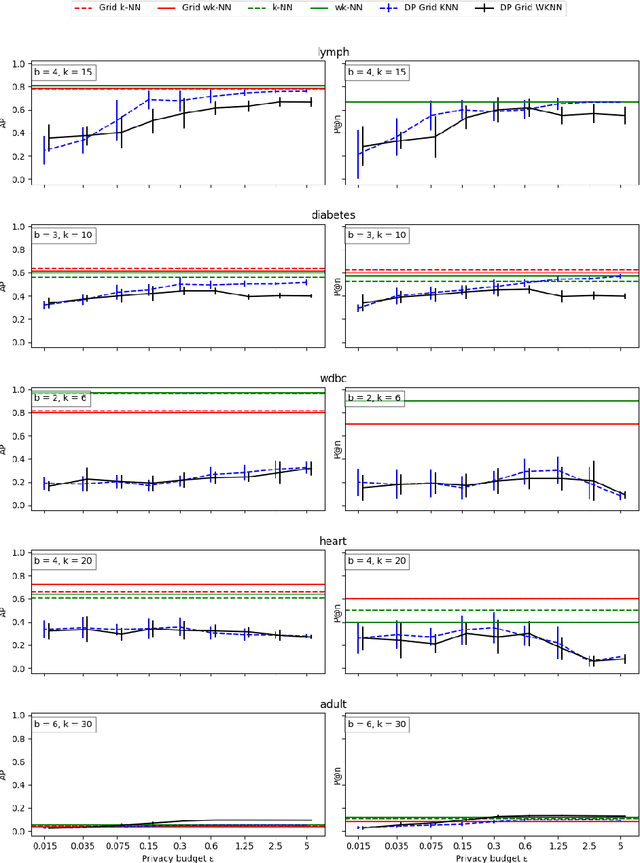
Abstract:When applying outlier detection in settings where data is sensitive, mechanisms which guarantee the privacy of the underlying data are needed. The $k$-nearest neighbors ($k$-NN) algorithm is a simple and one of the most effective methods for outlier detection. So far, there have been no attempts made to develop a differentially private ($\epsilon$-DP) approach for $k$-NN based outlier detection. Existing approaches often relax the notion of $\epsilon$-DP and employ other methods than $k$-NN. We propose a method for $k$-NN based outlier detection by separating the procedure into a fitting step on reference inlier data and then apply the outlier classifier to new data. We achieve $\epsilon$-DP for both the fitting algorithm and the outlier classifier with respect to the reference data by partitioning the dataset into a uniform grid, which yields low global sensitivity. Our approach yields nearly optimal performance on real-world data with varying dimensions when compared to the non-private versions of $k$-NN.
A Review of Anonymization for Healthcare Data
Apr 13, 2021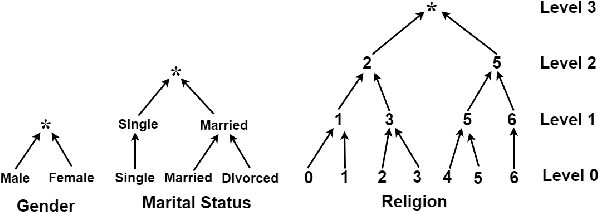
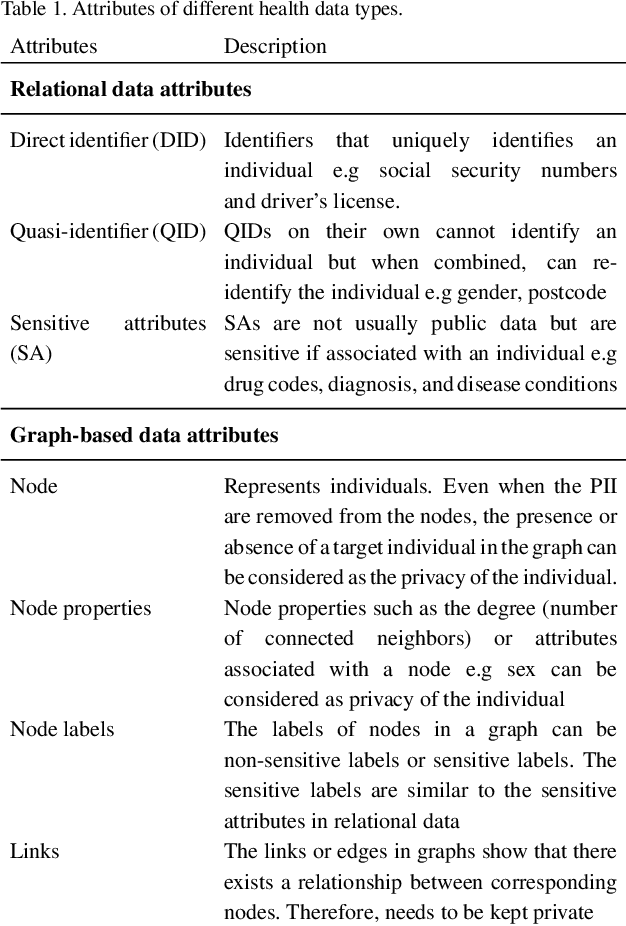
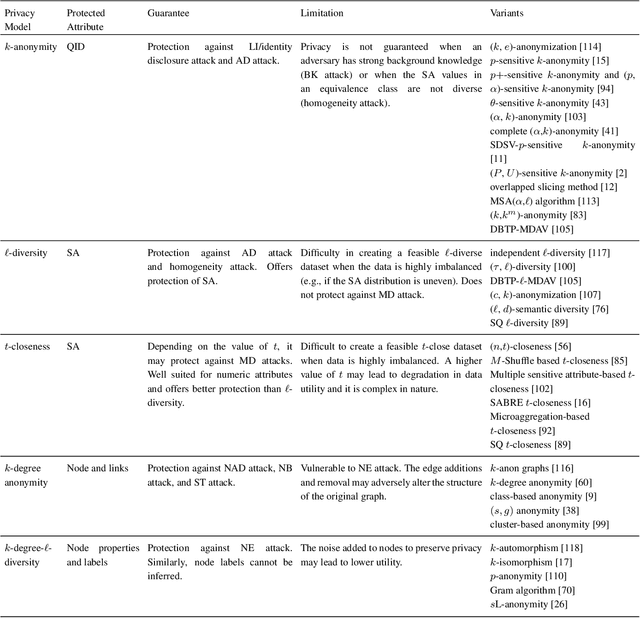
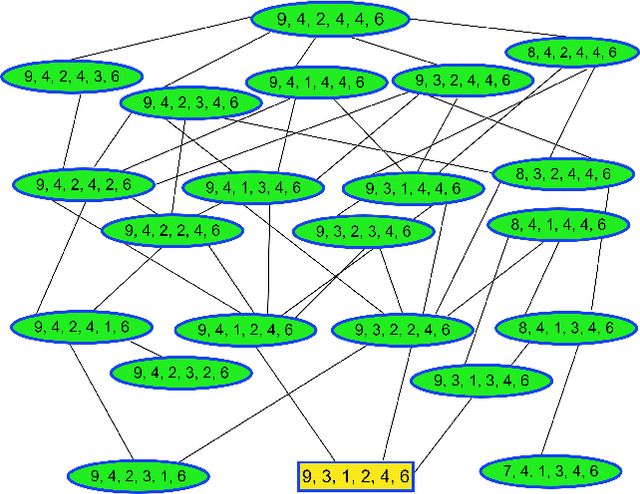
Abstract:Mining health data can lead to faster medical decisions, improvement in the quality of treatment, disease prevention, reduced cost, and it drives innovative solutions within the healthcare sector. However, health data is highly sensitive and subject to regulations such as the General Data Protection Regulation (GDPR), which aims to ensure patient's privacy. Anonymization or removal of patient identifiable information, though the most conventional way, is the first important step to adhere to the regulations and incorporate privacy concerns. In this paper, we review the existing anonymization techniques and their applicability to various types (relational and graph-based) of health data. Besides, we provide an overview of possible attacks on anonymized data. We illustrate via a reconstruction attack that anonymization though necessary, is not sufficient to address patient privacy and discuss methods for protecting against such attacks. Finally, we discuss tools that can be used to achieve anonymization.
 Add to Chrome
Add to Chrome Add to Firefox
Add to Firefox Add to Edge
Add to Edge